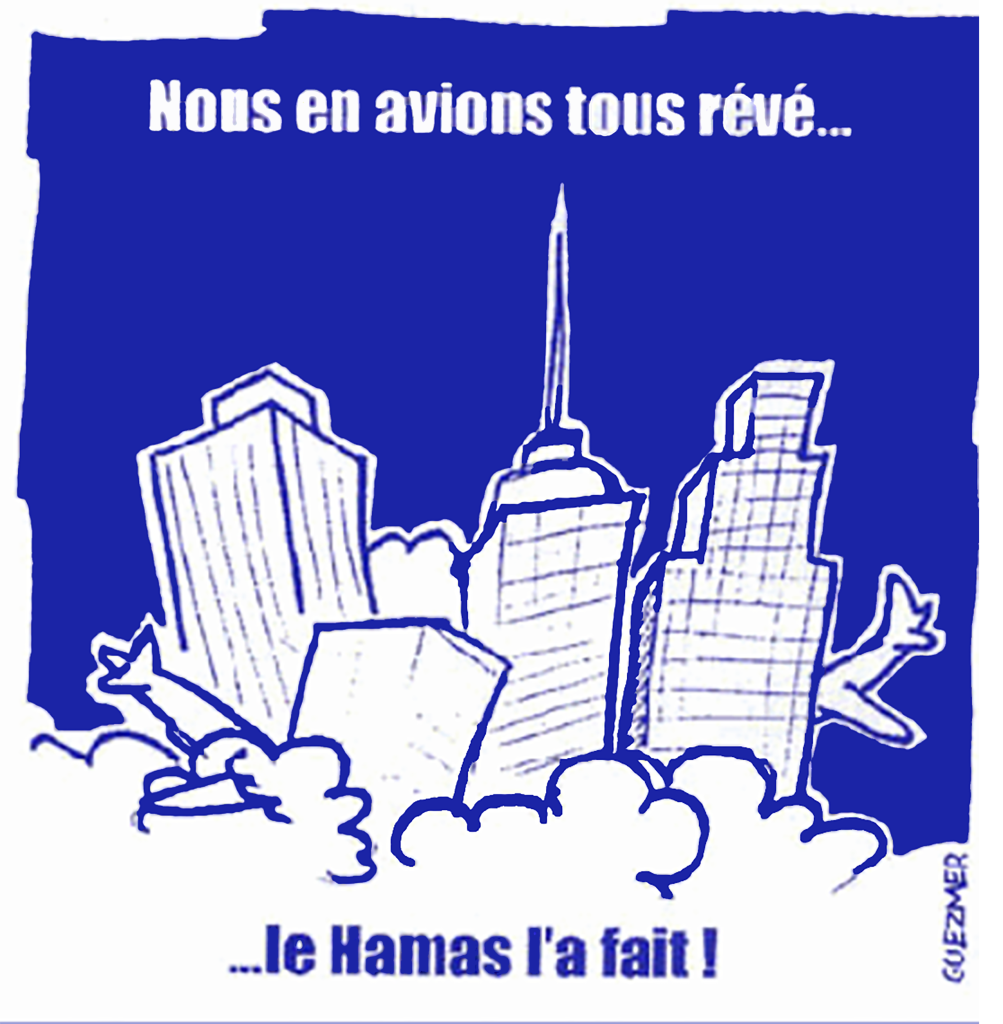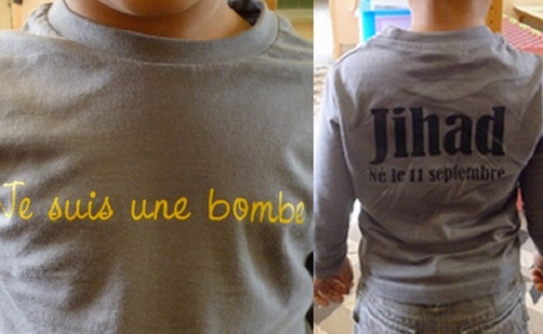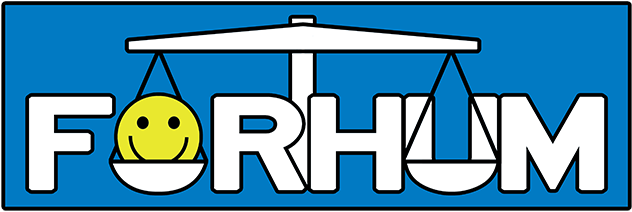

Leroy v. France
Mode of expression: Cartoon
Publication: Ekaitza (weekly magazine, French Basque Country)
Region: Europe (France)
Relevant dates: September 2001 (publication), October 2008 (final decision)
Outcome: Fine of €1,500 for both the cartoonist and the director of the magazine
Judicial body: European Court of Human Rights
Type of law: Criminal law
Themes: Apology for terrorism / Dark humor
ZB v. France
Mode of expression: T-shirt
Publication: Wearing t-shirt at preschool
Region: Europe (France)
Relevant dates: September 2012 (t-shirt worn), September 2021 (final decision)
Outcome: Two-month suspended prison sentence and €4,000 fine for Z.B.; one-month suspended sentence and €2000 fine for Z.B.’s sister.
Judicial body: European Court of Human Rights
Type of law: Criminal law
Themes: Apology for terrorism / Dark humor
Expressions of praise or support towards terrorist acts are considered a criminal offense in several judicial systems. While some countries only sanction statements amounting to direct incitement to commit terrorist attacks, others adopt a more restrictive approach, by curtailing any form of advocacy or glorification of terrorism. To be sure, the lines between literal incitement, “mere” advocacy of terrorism and legitimate political expression are often vague – and things inevitably get even more complicated when humor is involved. Two cases from the European Court of Human Rights – both concerning the 9/11 attacks – exemplify the challenges faced by courts dealing with terrorist-themed dark humor.
Context and legal cases
The applicant in Leroy v. France (ECtHR, No. 36109/03) was a cartoonist working for Ekaitza, a French Basque weekly magazine. On the day of the attack on the Twin Towers, he had submitted a drawing of the attack with the caption “We had all dreamed of it… Hamas did it,” parodying a Sony advertising slogan (“You dreamed of it, Sony made it happen”). Ekaitza published the cartoon two days later. Leroy stated that his intention was to represent the destruction of the American empire and highlight double standards in media representation. As he stated [where?], “What makes their [the US victims and their families’] pain so much more media-worthy than that of the Iraqis bombed every month by American and British aircraft?10). However, the European Court of Human Rights (ECtHR) unanimously upheld the outcome of the national proceedings (including a €1500 fine for glorification of terrorism), arguing that the national courts had adequately considered how the cartoon constituted a threat to public order in a region, such as the French Basque Country, sensitive to terrorism. Moreover, the court deemed the lack of chronological distance an aggravating factor, stating that “the cartoon was published on September 13th [2001], when the whole world was still shocked by the news” (Leroy v. France, at 45).
Thirteen years after Leroy, another French case focusing on 9/11-related humor reached the Strasbourg court and met a similar outcome. Z.B. v. France (ECtHR, No. 46883/15, 2 September 2021) focuses on a joke printed on a T-shirt, which the applicant gave as a birthday gift to his three-year-old nephew in September 2012. The T-shirt bore the words “Jihad, born on 9/11” and “I am a bomb.” The child was in fact named Jihad – which is a common name in the Arab world, generically meaning “effort” rather than “holy war” – who was born on 11 September 2009. Crucially, the term “bombe” can also mean “good looking” in French. The T-shirt was worn only once at preschool, and was only seen by adults when the preschool’s director and one of the employees helped Jihad change his clothing in the bathroom.
In the domestic proceedings, the applicant and his sister (Jihad’s mother) were initially acquitted by the first instance court of Avignon, but eventually convicted of glorification of terrorism by the Nîmes Court of Appeal. The applicant received a two-month suspended prison sentence and a fine of EUR 4,000, while Jihad’s mother received a one-month suspended sentence and a fine of EUR 2,000. The ECtHR unanimously upheld the domestic ruling, thereby essentially confirming the interpretation put forward by the Court of Appeal: “Certain attributes of the child (his first name, day and month of birth) and the use of the term ‘bomb,’ which cannot reasonably be claimed to refer to the beauty of the child, […] in reality serve as a pretext to valorize unequivocally willful attacks on life” (Z.B. v. France, at 11).
Analysis
Leroy’s cartoon is a classic – although particularly dark – example of parody. According to the literary theorist Gérard Genette, parody consists in adapting the letter of a given text or artwork to a different situation, usually with a comic effect (whether at the expense of the original text or of the situation being described). Building on Genette’s work, but taking a different perspective, Linda Hutcheon has defined parody as a form of “repetition with critical distance.” In Leroy’s case, the critical distance from the original is indeed integral to the overall message. In other words, the cartoon transposes and adapts a then-popular Sony commercial (“You dreamed of it, Sony made it happen”), with an implicit satire of the consumerist rhetoric underlying the slogan. This is consistent with the cartoonist’s declared intention to “criticize capitalism and American imperialism” (Leroy, 34). However, it is hard to deny that the cartoon conveys the author’s anti-imperialism in particularly extreme ways, resulting in the explicit glorification of the 9/11 attacks; the historical inaccuracy of the reference to Hamas (which had no part in the attacks) does not make a difference in this respect. As a consequence, the ECtHR was unanimous in confirming the outcome of the national proceedings, especially in light of the geographical and chronological context – even if this was meant as satirical exaggeration, the joke had been uttered “too soon” in the Court’s view, and could plausibly be construed as outright advocacy of terrorism.
Context was also an important factor in the Z.B. v France decision. In particular, the ECtHR highlighted that the facts took place six months after a terrorist attack at a French Jewish school, where three children and one teacher were killed. Based on these considerations, the Court upheld the appellate court’s finding that “the applicant cannot rely on the long delay between the attacks of September 11 and the wearing of the disputed inscriptions. The context of a terrorist threat would, on the contrary, be such as to increase its responsibility” (42).
However, according to some commentators, the perspective adopted by the Nîmes Court of Appeal and the ECtHR is not entirely convincing, and could have benefited from a closer examination of several features.
First, the idea that the French term bombe “cannot reasonably be claimed to refer to the beauty of the boy” seems flawed from a rhetorical perspective, as “I am a bomb” is in fact a conventional metaphor that is well established in the French language. More generally, the T-shirt’s allusions to the 9/11 attacks are part of a metaphoric construction ultimately referring to the child, while of course playing with the fact that a child named Jihad was born on 9/11. In this sense, the Z.B. joke is structurally different from the Leroy cartoon (which is repeatedly evoked in the proceedings as a significant precedent), as the cartoon featured a direct and explicit statement about the Twin Towers attacks.
Second, although the first instance court of Avignon ascertained that the T-shirt was only worn “on one occasion” which was “limited in time (the afternoon of 25 September) and space (the nursery class),” and that “only two people had been able to see the words on the T-shirt while dressing the child,” these aspects (which significantly attenuate the joke’s potential impact) were not extensively considered by the Court of Appeal and the ECtHR.
Third, the ECtHR stated that “the fact that the applicant has no ties with any terrorist movement whatsoever, or has not subscribed to a terrorist ideology, cannot attenuate the scope of the disputed message” (60). Yet one could argue that the speaker’s prior conduct and ideological profile are particularly relevant when it comes to criminal charges like glorification of terrorism, even more so when the disputed text is an ambiguous joke.
Lastly, another important contextual (or intertextual) factor is genre, namely the discursive tradition to which the contested joke can be reasonably ascribed. In this sense, Z.B.’s T-shirt could be usefully placed in dialogue with a sub-genre of dark humor often used by comedians from a Muslim background post 9/11, relying on the ironic use of Islamophobic tropes such as “all Muslims are terrorists.” Shortly after 9/11, for example, British stand-up comedian Shazia Mirza famously opened her set with the line “My name is Shazia Mirza, or at least that’s what it says on my pilot’s license” – which, rather than being a glorification or trivialization of terrorism, was meant as a sarcastic critique of mounting Islamophobia after the attacks (Aidi 2021). Similarly, the disputed T-shirt can also be construed as an attempt (however awkward) to make fun of the Islamophobic cliché casting Muslims as Jihadists until proven otherwise – let alone a family where a child is named Jihad.
Certainly, the ECtHR judgment also presented some valid reasons for upholding the domestic ruling, including the importance of acknowledging a significant margin of appreciation to national courts, which are often better positioned to assess the impact of a disputed expression within its specific socio-cultural context. However, a more thorough consideration of the aspects listed above might have led to a different outcome.
Sources and further reading:
Godioli, Alberto and Young, Jennifer. 2023. Humor and Free Speech: A Comparative Analysis of Global Case Law. Columbia Global Freedom of Expression, Special Collection. DOI: https://doi.org/10.5281/zenodo.8105760
Nugraha, Ygnatius. 2021. ‘It’s just a prank, bro!’ ZB v. France and a dark humour that turned sour. Strasbourg Observers, 12 October. URL: https://strasbourgobservers.com/2021/10/12/its-just-a-prank-bro-zb-v-france-and-a-dark-humour-that-turned-sour/
